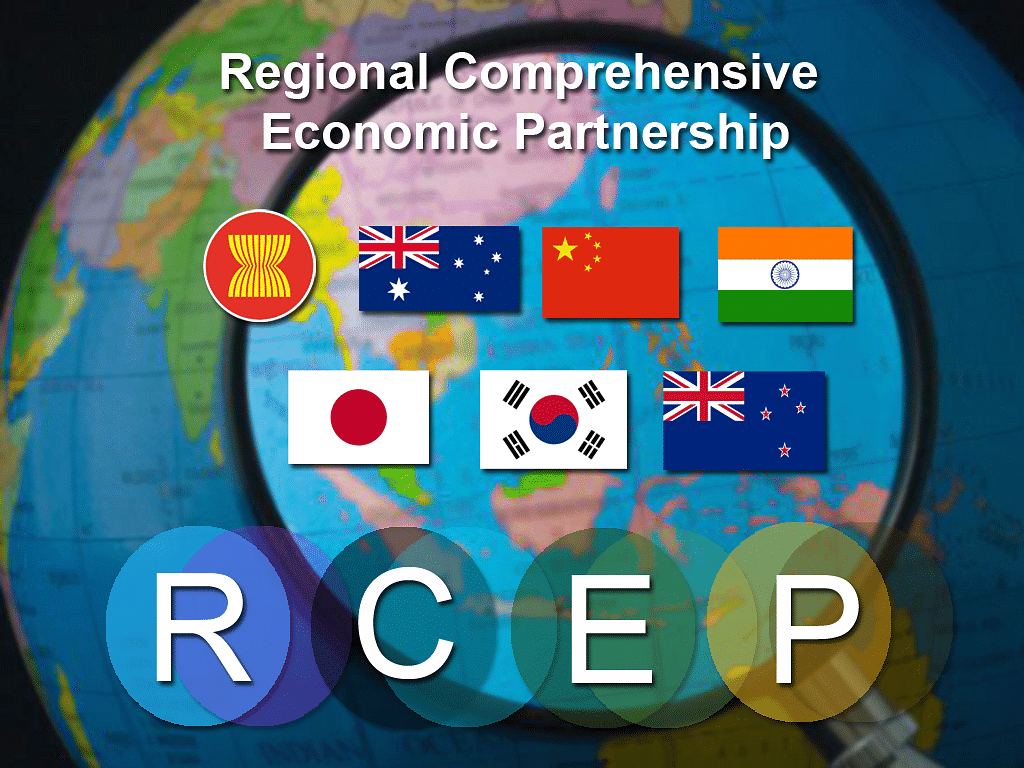Insta
India Gets A Breather As RCEP Talks Deferred Till 2019 While Issues Of E-Commerce, Investment Remain

RCEP negotiations are going on between ASEAN+6 countries (Source: Website/ASEAN)
Concluding negotiations of RCEP (Regional Comprehensive Economic Partnership) agreement have been postponed till 2019, as reported by Livemint. The decision has been taken as key participating countries like India head for elections.
“We welcomed the substantial progress made in RCEP negotiations in 2018. We have advanced to the final stage of negotiations. We are determined to conclude a modern, comprehensive, high quality, and mutually beneficial RCEP in 2019,” a joint statement by RCEP leaders noted.
Though the August ministerial had aimed to reach “package of year-end deliverables” by December, little progress has been made over key issues of contention. Therefore, India was reluctant for early conclusion given high domestic pressures in the face of upcoming general elections. With the postponement, the government gets a much-needed breather.
Though negotiations on trade issues like economic and technical cooperation, standards, sanitary and phytosanitary measures, government procurement etc have been completed, disagreements remain on thorny issues like e-commerce, competition and investment chapters.
RCEP is a proposed free trade agreement between 16 nations: 10 ASEAN nations along with New Zealand, Japan, Indian, China, South Korea and Australia. When completed, it would create the world’s largest trading bloc accounting for around 40 per cent of global GDP.
However, some quarters of the Indian economy have raised contention against the deal. Though ASEAN nations have granted some concessions in the last few days, opening up Indian markets to China might further exacerbate India’s already high trade deficit with the neighbour, they argue.
Indian Statement said that the commerce minister defended India’s interests effectively and secured maximum concessions.
“Both in STRACAP and SPS negotiations, India managed to obtain balanced outcomes in the application of the Dispute Settlement Mechanism. India showed flexibility on the principle of ‘consensus’ in the Institutional Provisions Chapter which helped in its successful conclusion during the meeting,” it added.
Also Read:
Support Swarajya's 50 Ground Reports Project & Sponsor A Story
Every general election Swarajya does a 50 ground reports project.
Aimed only at serious readers and those who appreciate the nuances of political undercurrents, the project provides a sense of India's electoral landscape. As you know, these reports are produced after considerable investment of travel, time and effort on the ground.
This time too we've kicked off the project in style and have covered over 30 constituencies already. If you're someone who appreciates such work and have enjoyed our coverage please consider sponsoring a ground report for just Rs 2999 to Rs 19,999 - it goes a long way in helping us produce more quality reportage.
You can also back this project by becoming a subscriber for as little as Rs 999 - so do click on this links and choose a plan that suits you and back us.
Click below to contribute.
Latest